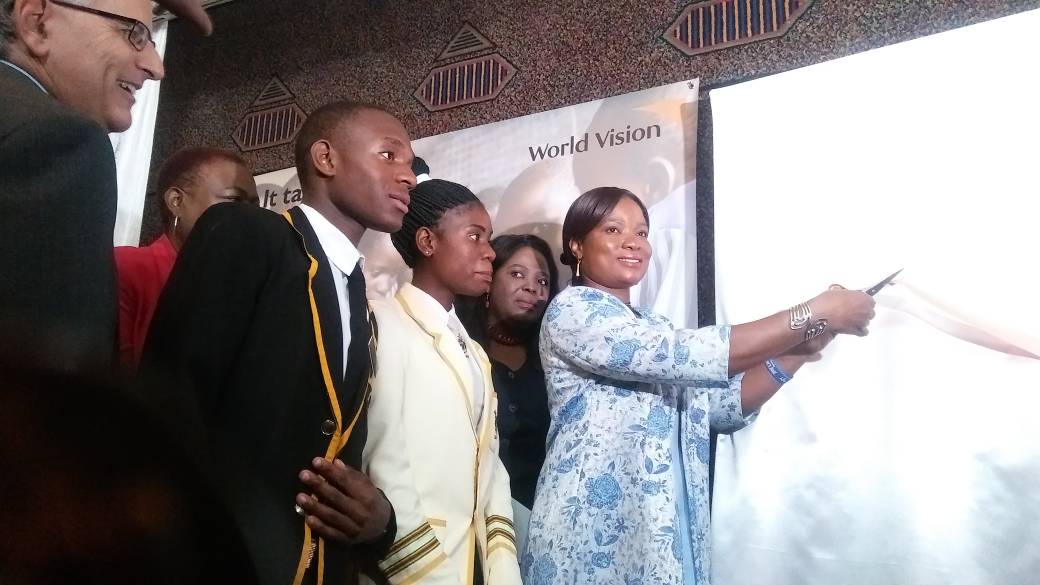By Patricia Mashiri and Joyce Mukucha
In an effort to bring togetherness in people and end violence against children, World Vision Zimbabwe and its global partners will be implementing a 5-year campaign called ‘It takes the world to end violence against children’.
The campaign which will run under the theme ‘Together we can end sexual violence against children in Zimbabwe’ aims to catalyse a global movement of people committed to keeping children safe from harm.
The campaign will focus on children, parents and communities to uphold children’s rights and report cases of sexual violence as well as lobby the government and stakeholders to provide adequate budget and resources for sustainable programmes to support child-headed families and all vulnerable children in Zimbabwe.
Petronella Kagonye, the Minister of Labour and Social Welfare reiterated the need to work together to attain the objectives.
“The campaign’s name reflects the fact that no one person, group or organisation can address this challenge alone. This is in line with one of World Vision’s core values where the organisation upholds the concern of ‘Partnerships’.
“As government through my Ministry, we fully support the advocacy towards the creation of an enabling policy environment where children are protected and where children can enjoy their rights. We are committed to ensuring this country has child friendly and child-centred policies that prevent all forms of harm against our children,” Kagonye said.
The Minster urged people to go and spread the message of ending violence against children so as to rekindle a light of hope to the marginalised, and penetrate the hard to reach areas where information gaps are high as every child deserves to be protected.
Emmanuel Isch, the World Vision Zimbabwe National Director, said children are the future of Zimbabwe and there was more to be done to eradicate the challenges of sexual violence.
“It’s better we work together and ensure that children grow in an environment that is safe. We should make sure that all types of violence are eliminated in the country,” Isch said.
Dr Shingi Munyeza, the President of Evangelical Fellowship said there was need to empower women in the church. He noted that women are often confined in the traditional chores including housekeeping and child-bearing.
“Violence is emanating from a paternalistic society where women are treated unfairly and the leadership in churches is biased. It is imperative that these women are given their rights to lead and learn to stand and protect themselves,” Dr. Munyeza said.
He added that there was need to revisit the traditional norms and values which include marriage customs that suffocate rights of children.
Netty Musanhu, the Director of Musasa Project alluded to research findings that showed that 65% of Gender Based Violence against young girls were committed in the homes.
